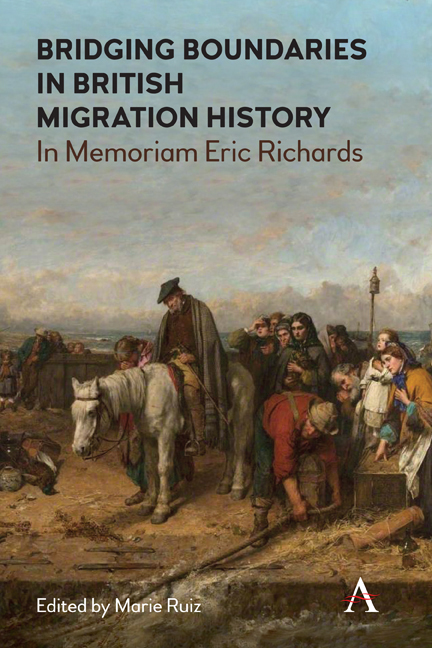Chapter 9 - Irish Immigrants and the Middle Class in Colonial New Zealand, 1890–1910
Published online by Cambridge University Press: 20 January 2022
Summary
In his last book, as he had done in earlier publications, Eric Richards emphasized similarities between different national and regional groups of emigrants, even as he warned against ‘homogenising a story which is composed of millions of lives with all their individualities and unique characteristics, properties and contexts’. Historians of migration, at least of migration from the British Isles, might be warned of the risk of both over-and under-emphasizing the differences between migrants from the different parts of the Isles for, despite the convergences, ‘the Welsh, Scottish and Irish stories were significantly different from the main English streams. They each require special attention.’ The temptation to homogenize is also evident with reference to national and regional groups. So far as the Irish were concerned, despite stereotypes of dislocation and dispossession, ‘like other streams, Irish emigration was extremely varied and included doctors, landowners, clerics, teachers, urbanites, novelists and every other category of Irish life’.
This essay is concerned with Irish migrants who achieved at least a modest prosperity in New Zealand, who became part of an emerging colonial middle class. Most nineteenth-century migration, as Eric Richards reminded us, was ‘economic migration, of people volitionally seeking better lives for themselves and their children. But they migrated under widely varying circumstances, some clearly more desperate than others, some with a determination to improve or rescue the basic conditions of their lives and setting up for the next generation’. As Eric Richards so often did himself, this chapter will combine large-scale quantitative evidence with the life-stories of individuals. The latter reminds us that migration is about people's lives, while the former allows us to place these individuals’ lives in context.
Drawing on a large dataset of middle-class biographies and probate files, this chapter suggests that there were some distinctive characteristics – subtle but important – in the experience of Irish who achieved modest wealth in New Zealand. New Zealand's Irish were disproportionately Ulster-born, and this is true of the Irish with whom this chapter is concerned. New Zealand's Irish appear to be underrepresented in the middle class of 1900, and New Zealand Irish who were middle class followed particular occupational paths.
- Type
- Chapter
- Information
- Bridging Boundaries in British Migration HistoryIn Memoriam Eric Richards, pp. 177 - 196Publisher: Anthem PressPrint publication year: 2020



